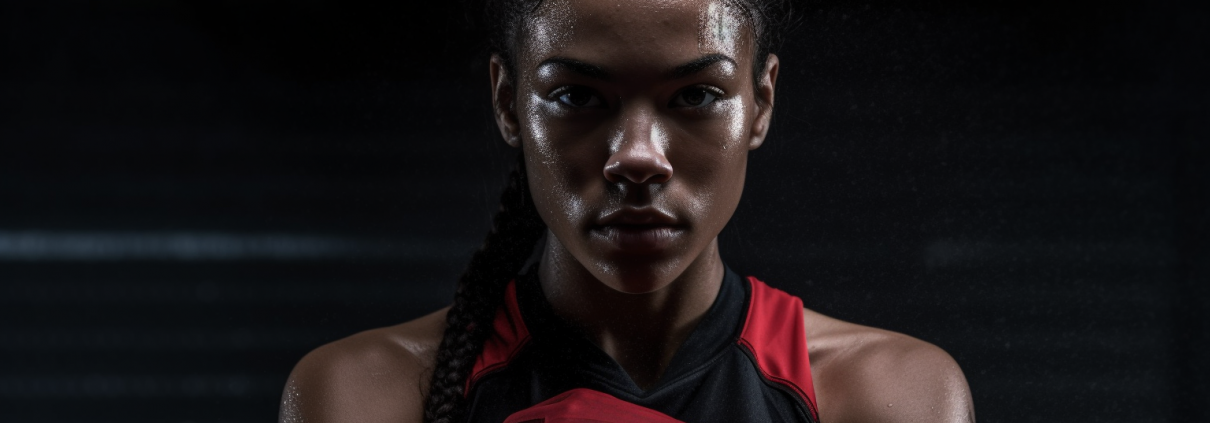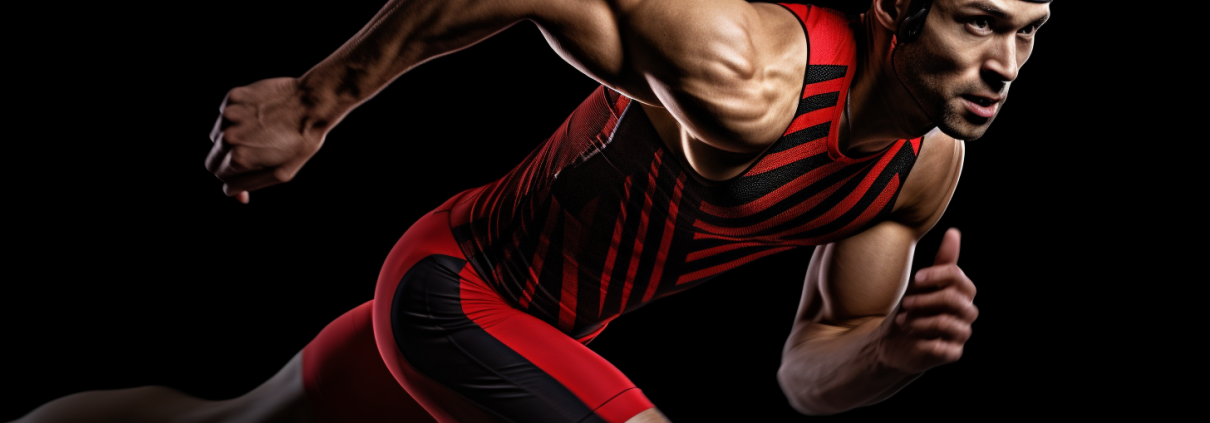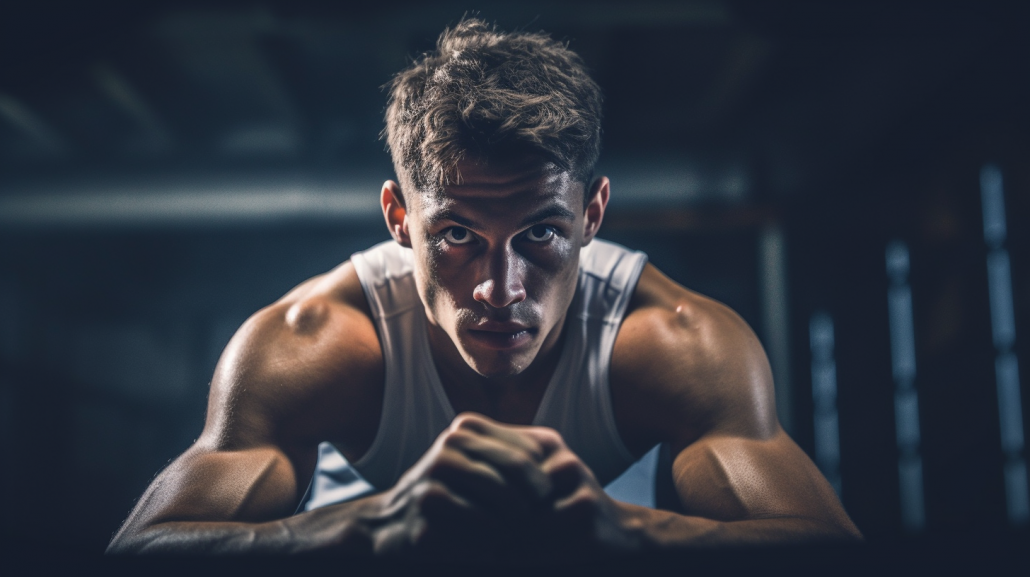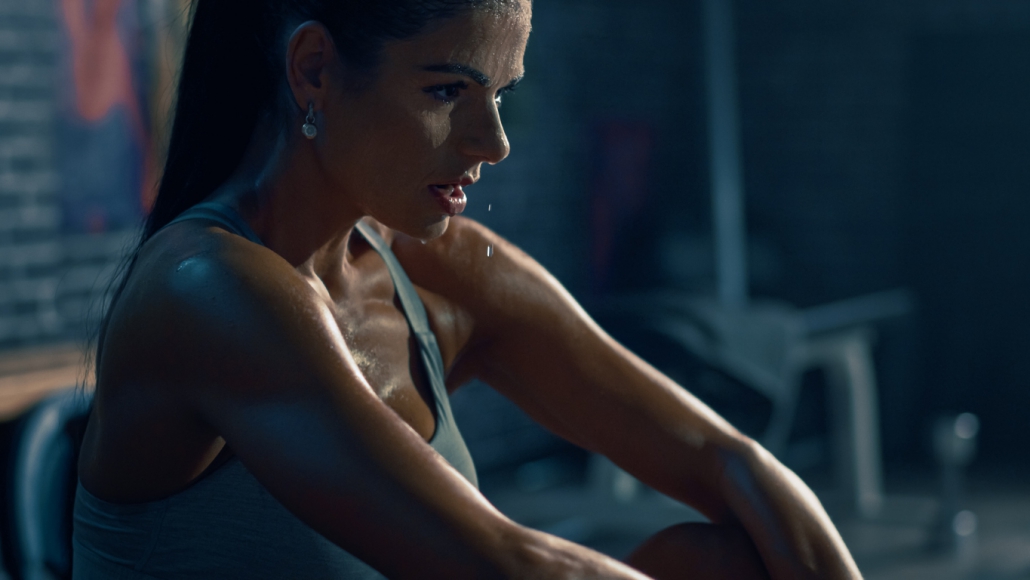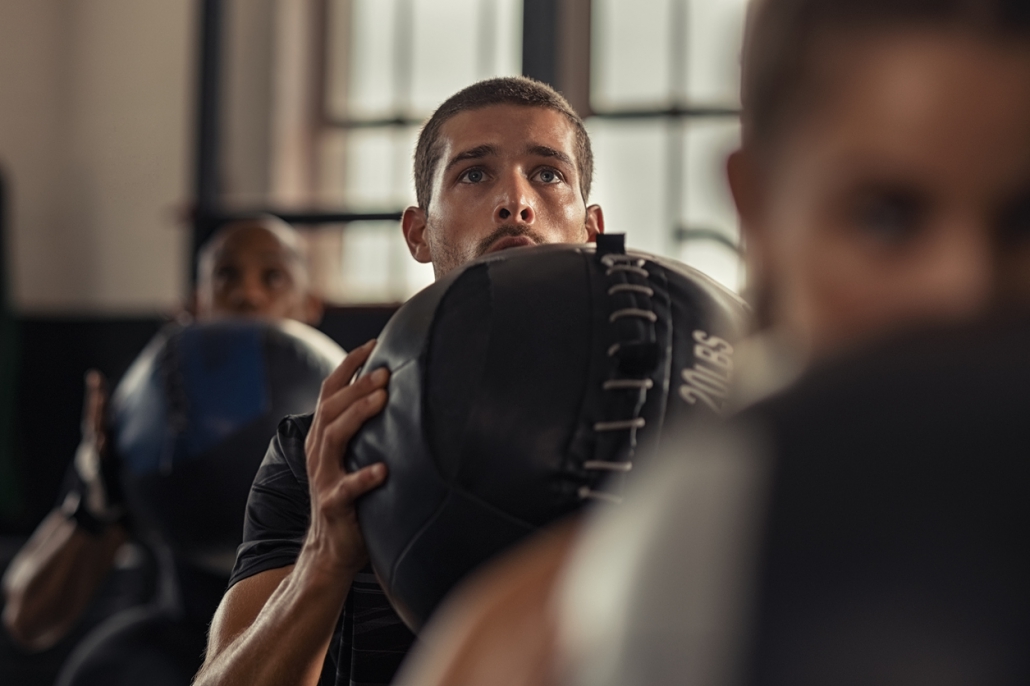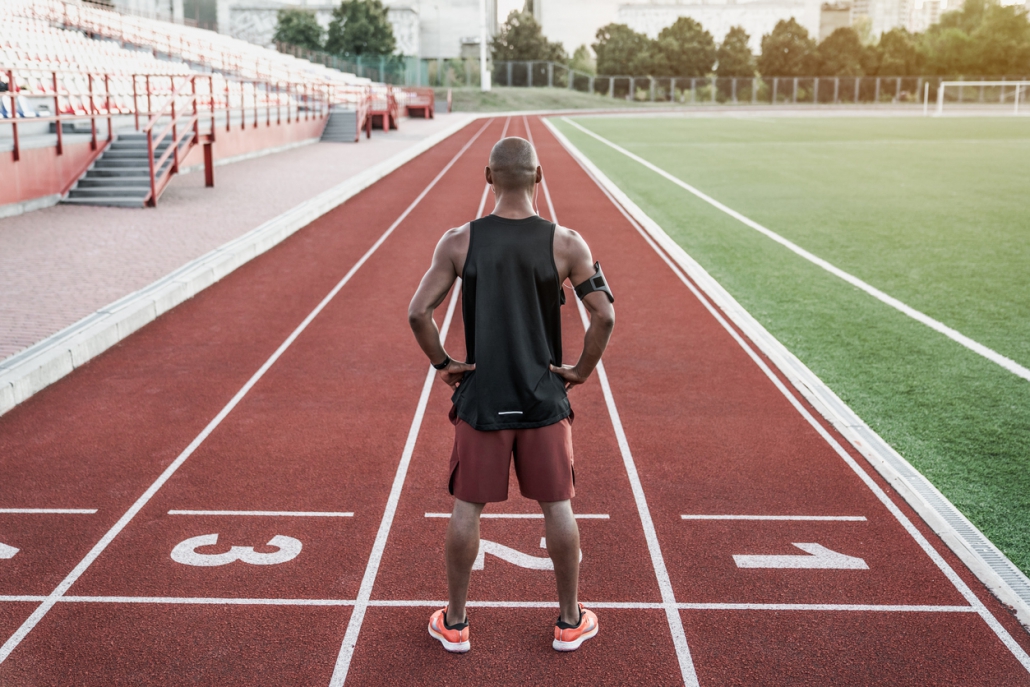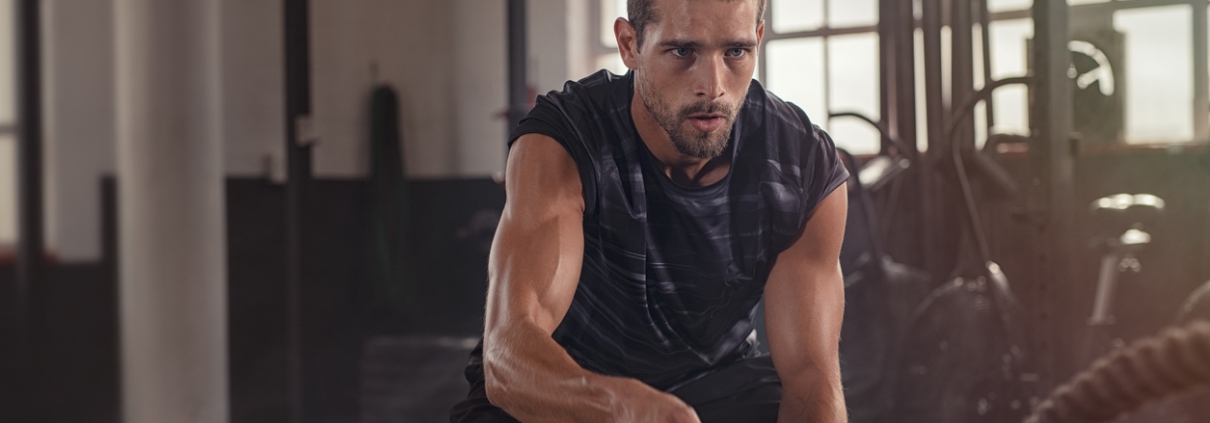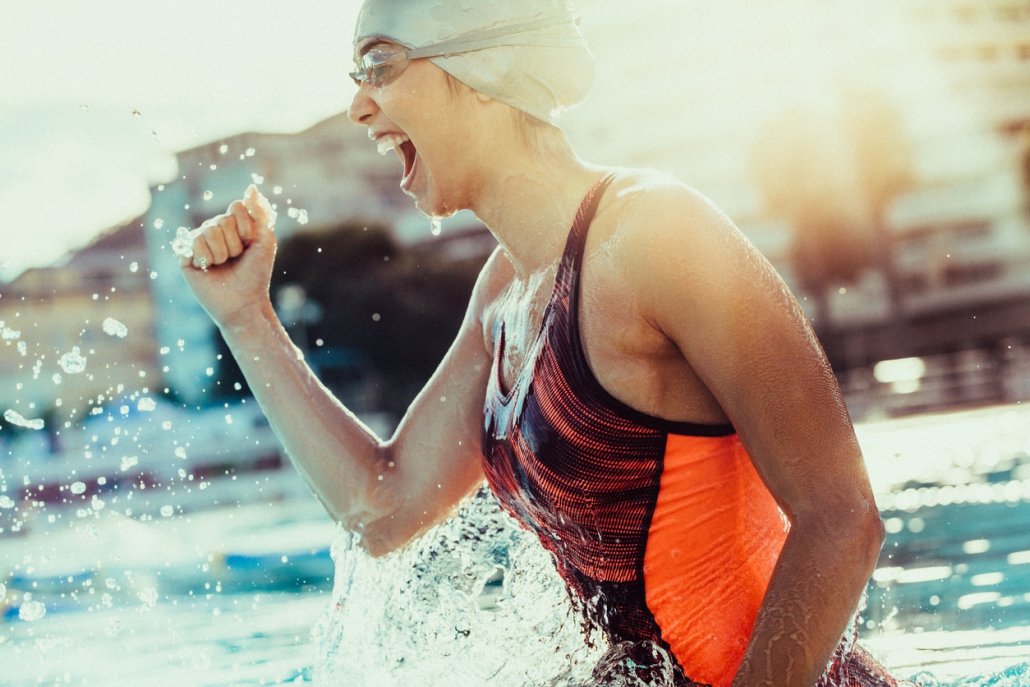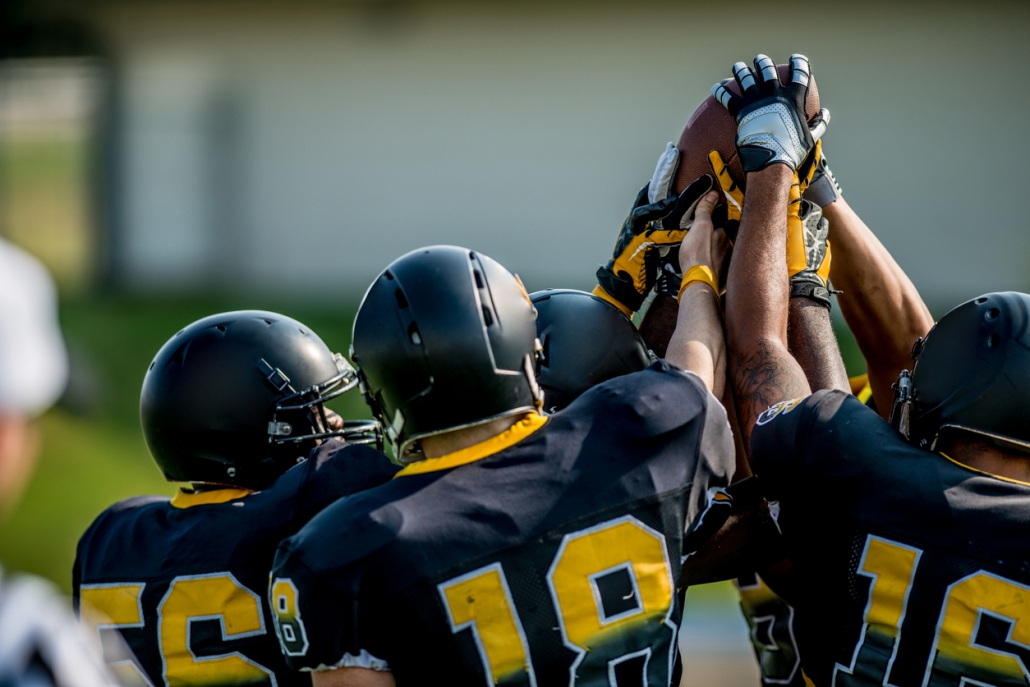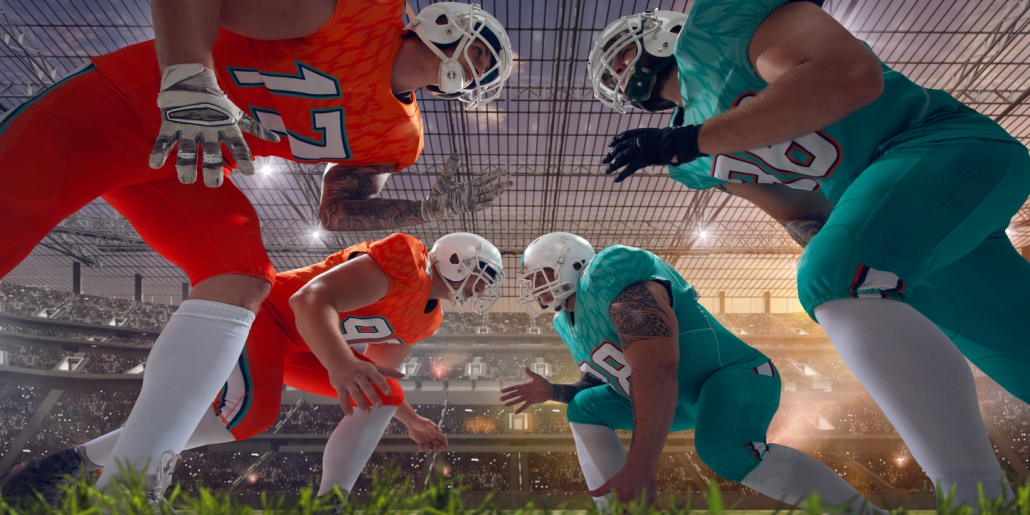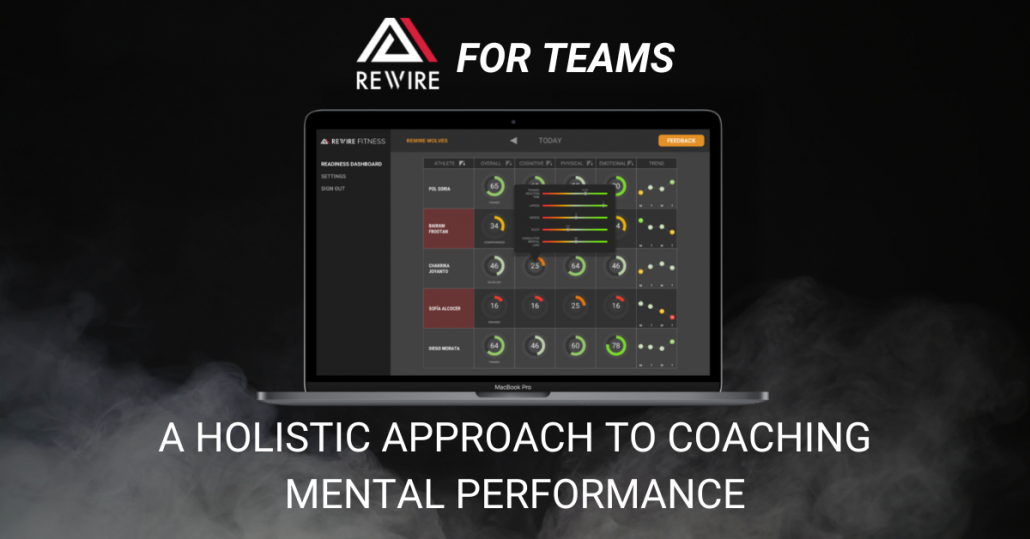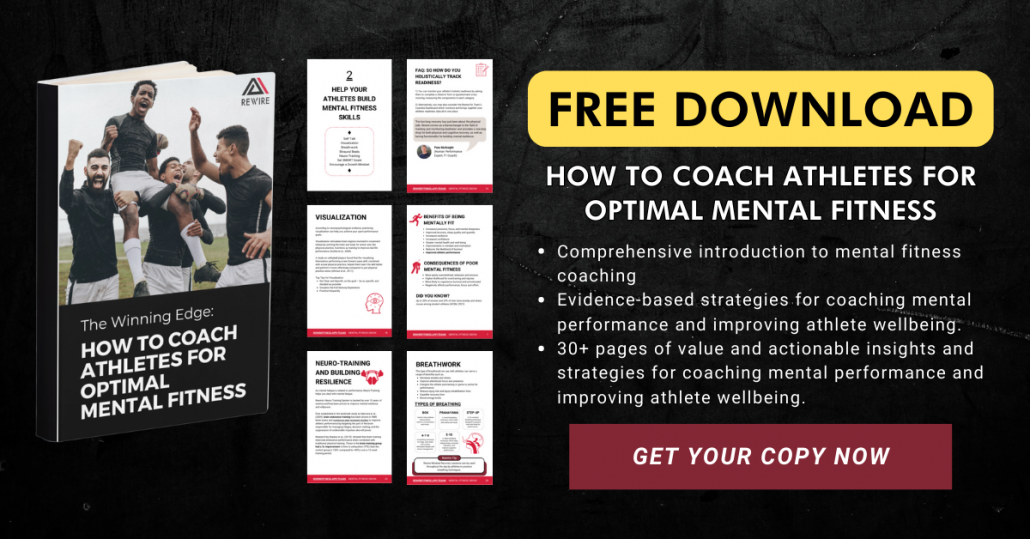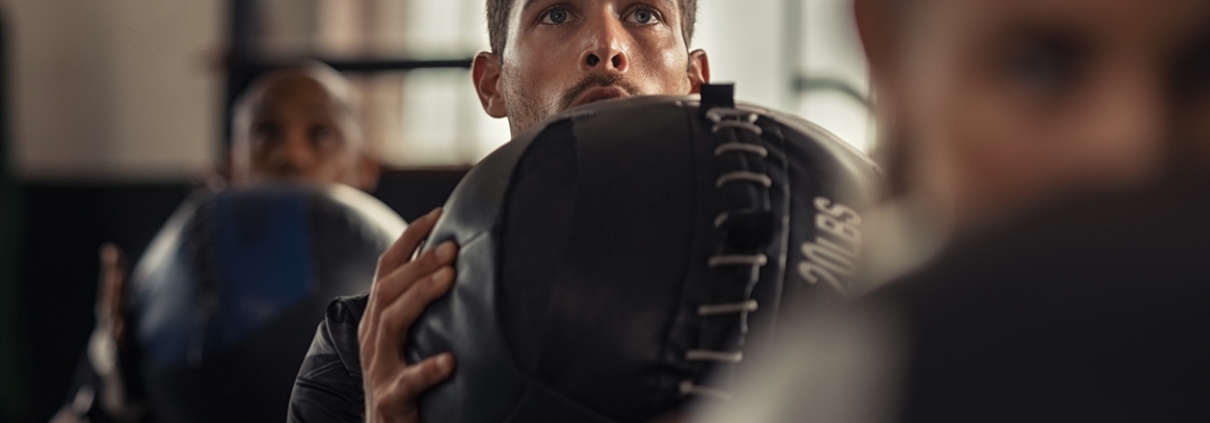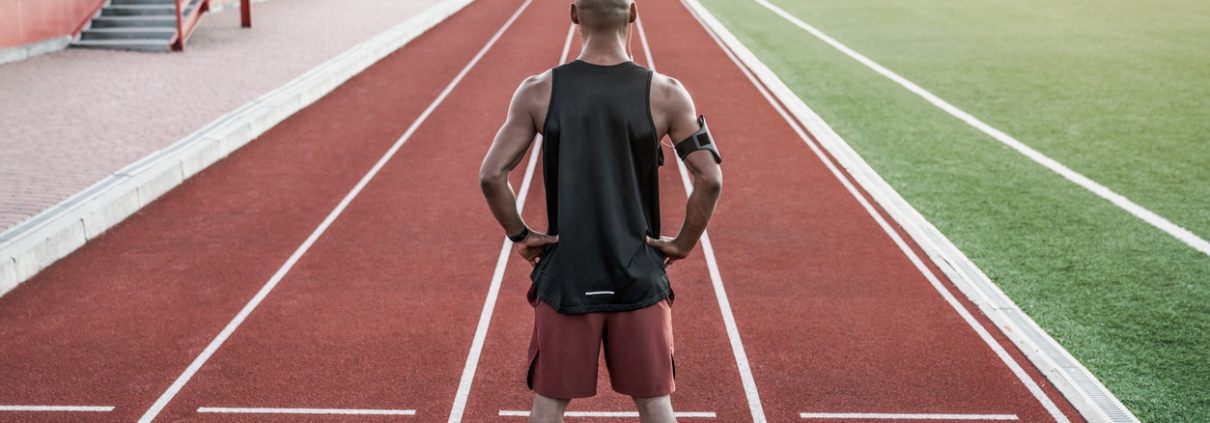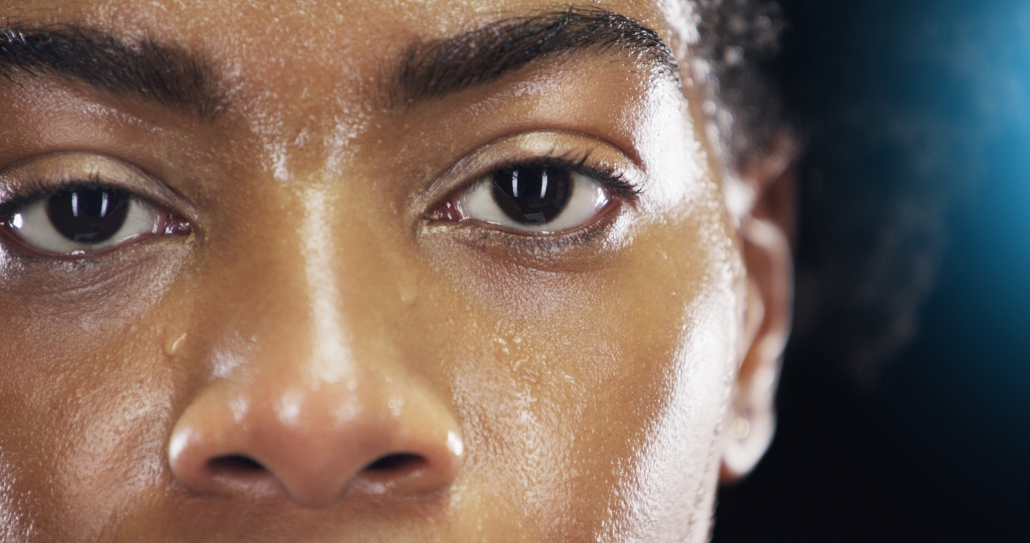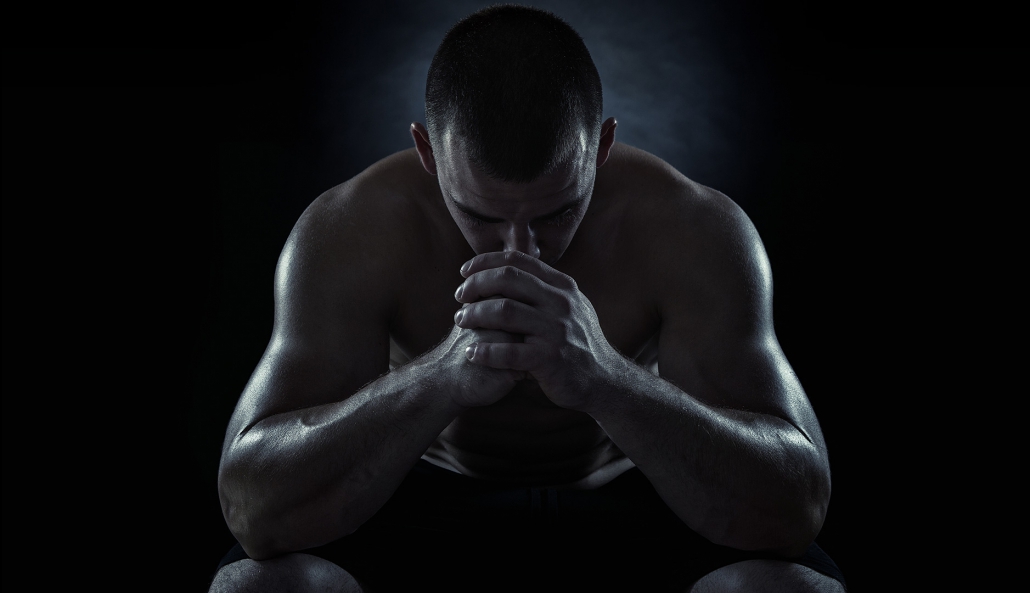How to Build Mental Toughness in Athletes
When it comes to sports, mental toughness can be just as important as physical ability.
Athletes with a strong mindset are better equipped to handle pressure, overcome obstacles, and push through fatigue to achieve their goals. But mental toughness isn’t something that comes naturally to everyone. It’s a skill that must be developed and honed over time.
In this blog post, we’ll explore key principles and provide tips for building mental toughness in athletes, this includes goal setting, visualization, and adopting a stoic mindset. So whether you’re an elite athlete looking to gain a slight advantage, or a beginner who is just learning about mental toughness, you will find this post valuable.
So, let’s dive in and discover how to build mental toughness in athletes!
Related: The Science Behind Mental Toughness, and The Top 4 Attributes You Should Have.

What is mental toughness?
Mental toughness refers to the ability to perform under pressure, cope with challenges, and maintain focus and motivation in the face of adversity, i.e. during intense competition.
But what makes up mental toughness? It includes a mix of psychological skills, such as an unshakable self-belief, a resilient mindset, perseverance, and the ability to control emotions in real-time (e.g. not being affected by a yellow card or a decision that did not go in your favor).
It’s widely understood that the best athletes are mentally tough. They know how to persevere and dig deep when the going gets tough. But it’s not only a skill for sports; it’s a skill for life.
So how do you build mental toughness?
Related: How to Teach Mental Toughness in Sports.
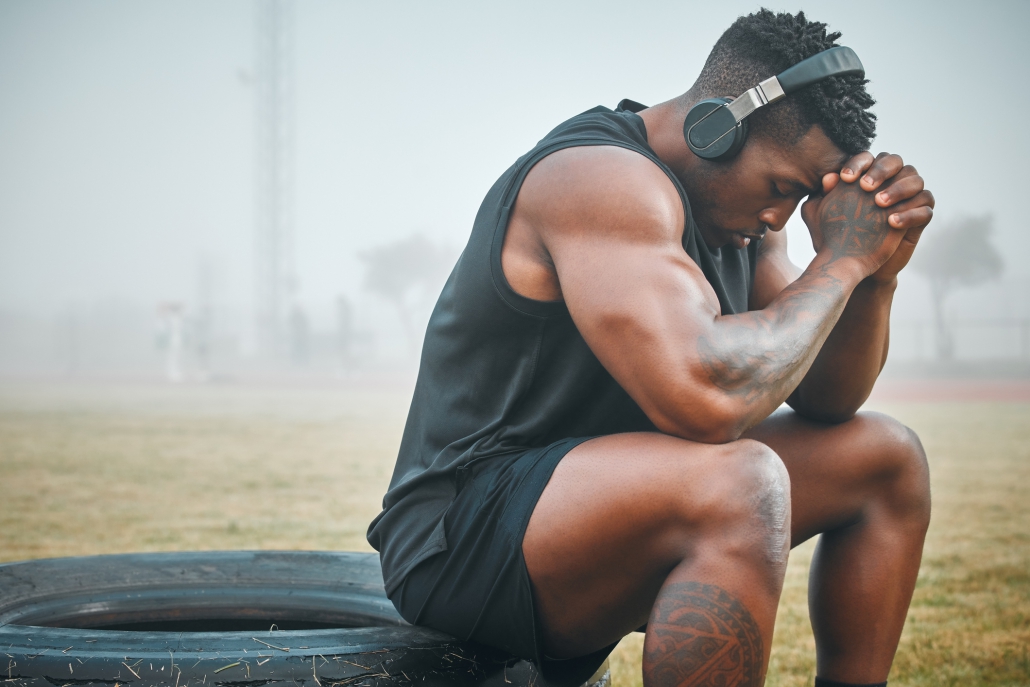
How to build mental toughness
Some athletes are more mentally tough than others. That’s just the way that is. However, you can train and build mental toughness. Iron doesn’t become a sword until it’s beaten in the fire — don’t expect to become mentally tough without any work.
So how do you start beating on the iron and strengthening your mind? We recommend the following:
- Set goals to improve mental toughness
- Use positive visualization
- Be stoic
- Practice discipline
- Use positive self-talk
- Embrace failure as an opportunity to learn and improve
Set goals to improve mental toughness
Goal setting is an essential skill and tool athletes should develop to help build mental toughness.
By now, you’re most likely familiar with SMART goals — these are specific, measurable, and achievable goals that provide you with a clear sense of direction, purpose, and intention [3].
As a general rule of thumb, you should set both long-term and short-term goals. But a big mistake many people make is not aligning their short and long-term objectives. Some people prefer to label their short-term goals as an “action plan” — it’s how you move towards those long-term goals [1].
Let’s say, for instance, that your long-term goal is to break the 15-minute 5k time. In that case, your short-term goals, or your action plan, should be to break the 15.30, then the 15.15 times, and so on.
Achieving these short-term goals in pursuit of your long-term goals provide motivation, confidence, and help you stay on track to achieve your goals.
Goal setting is a critical component to build mental toughness in sports, whether you’re an x-country runner, a basketball player, or a pitcher in baseball. Well-thought-out goals provide you with the blueprint for overcoming adversity and move the needle toward success.
Use positive visualization
Positive visualization is a powerful, and often underused tool in the mental toughness toolkit.
Athletes can visualize and rehearse successful skill performance (and even scenarios) to improve their confidence and reduce anxiety. In fact, visualization is thought to reinforce positive neural pathways in the brain — it’s very difficult for the brain to tell what’s real and what’s not.
It’s why Tiger Woods is a big proponent of mental training and visualization. Here’s a quote from Tiger:
“In the year 2000 I won 12 times, including 3 majors and I only remember hitting one shot I would call perfect. It was a 3 wood on #14 in the third round of the British Open at St. Andrews. As with every shot, I attempt, I visualize that ball flight and the shot turned out exactly as I had planned.”
You’re essentially creating a blueprint of success — a roadmap you can follow and apply directly to your sport or skill.
Athletes can also use positive visualization to reduce anxiety — that includes pre-game and even mid-game nerves. The result? You can create a mentally tough athlete who has the tools on hand to adjust their emotional state on the fly, resulting in peak performance whether performing well in training, or in front of a crowd of thousands.
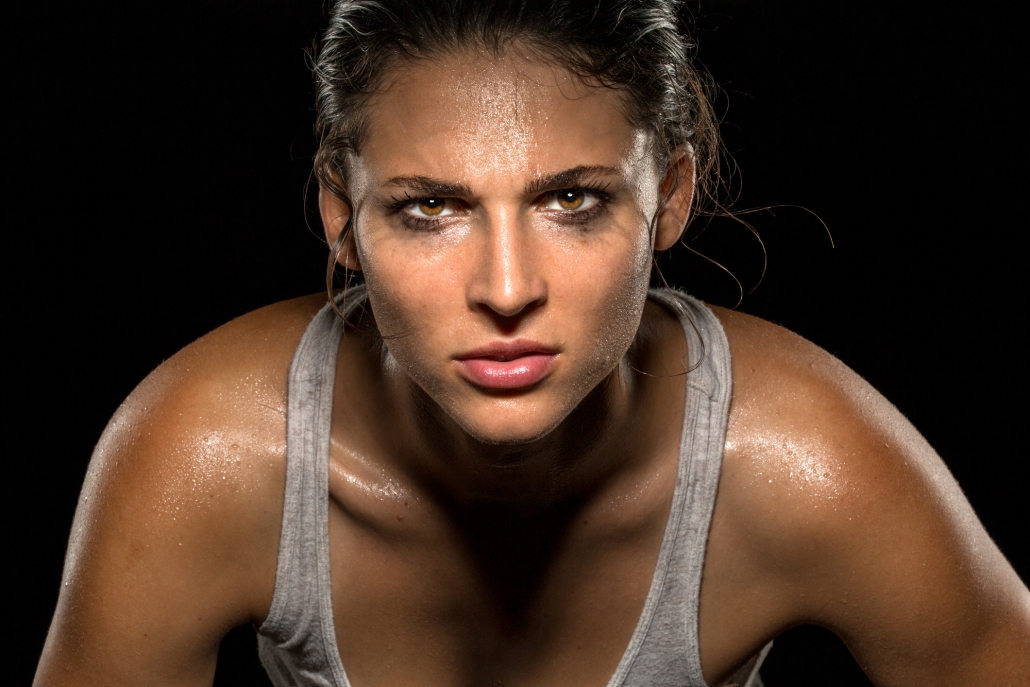
Be stoic
Marcus Aurelius once said:
“You have power over your mind – not outside events. Realize this, and you will find strength.”
But what does it actually mean to be stoic? Stoicism is a philosophy that emphasizes self-control, discipline, and resilience in the face of adversity, e.g. relegation, not being picked for a team, losing despite training hard, and so on.
The guiding principle of stoicism is to accept the things you can’t control. And instead, to focus on what you can control (what is in your power) to develop inner calm and tranquility.
Stoics believe that by effectively managing emotions and focusing on the present moment, that we can overcome negative emotions and harmful impulses, and face challenges head-on.
For example, let’s say it’s halftime, and you’re losing by five points. An athlete with a stoic mindset see’s the situation for what it is. But does not experience that psychological quiver. Instead, they focus on what they can control and practice discipline to do their absolute best to overcome the obstacle in front of them.
Related: The Top 5 Stoic Quotes You Need to Know to Build Mental Toughness
Practice Discipline
We’ve discussed this above already, but discipline is an essential aspect of building mental toughness [2].
If an athlete does not have discipline, they’ll struggle to develop mental toughness. Take a moment to think about it: discipline is needed to set healthy habits and routines (e.g. waking up early to train, following a healthy diet, and avoiding distractions). If you can’t practice discipline, then you can’t cultivate a growth mindset, i.e. you won’t embrace challenges, seek feedback, or be open to learning new skills and techniques to improve performance.
Focus on improving your discipline, and you’ll set yourself up for success.
Use positive self-talk
Athletes can use positive self-talk to shift their mindset, focus on performance, and reduce negative thoughts. Often, athletes will speak affirmations, mantras, and cues to improve performance.
Many people think that self-talk is exclusively done aloud. But a lot of athletes speak to themselves in their minds — there is no right or wrong way to do it. However, you don’t have an actual conversation with yourself to reap the benefits.
Add mantras such as “Make the play,” “I deserve to win,” and “I got this,” into your game.
You can also add cues to enforce positive behaviors, e.g. “high knees” or “eyes ahead.” You’ll need to create your own cues and mantras for your sport, but adding this self-talk can help improve your game.
Embrace failure as an opportunity to learn and improve
Instead of viewing failure as a setback or a reflection of their abilities, athletes who adopt a growth mindset see failure/a lack of success as an opportunity for improvement usually come out on top.
This, once again, relates back to stoicism and resilience in the face of adversity.
Athletes can learn from their mistakes, failures, and shortcomings and refine their techniques, improve their weaknesses, and double down on their strengths. Embracing this mindset improves mental toughness and creates a mindset shift towards welcoming difficult things.
See failure as an opportunity to improve. It’s part of beating the iron in the fire — it will only make you stronger, so long as you embrace the process.
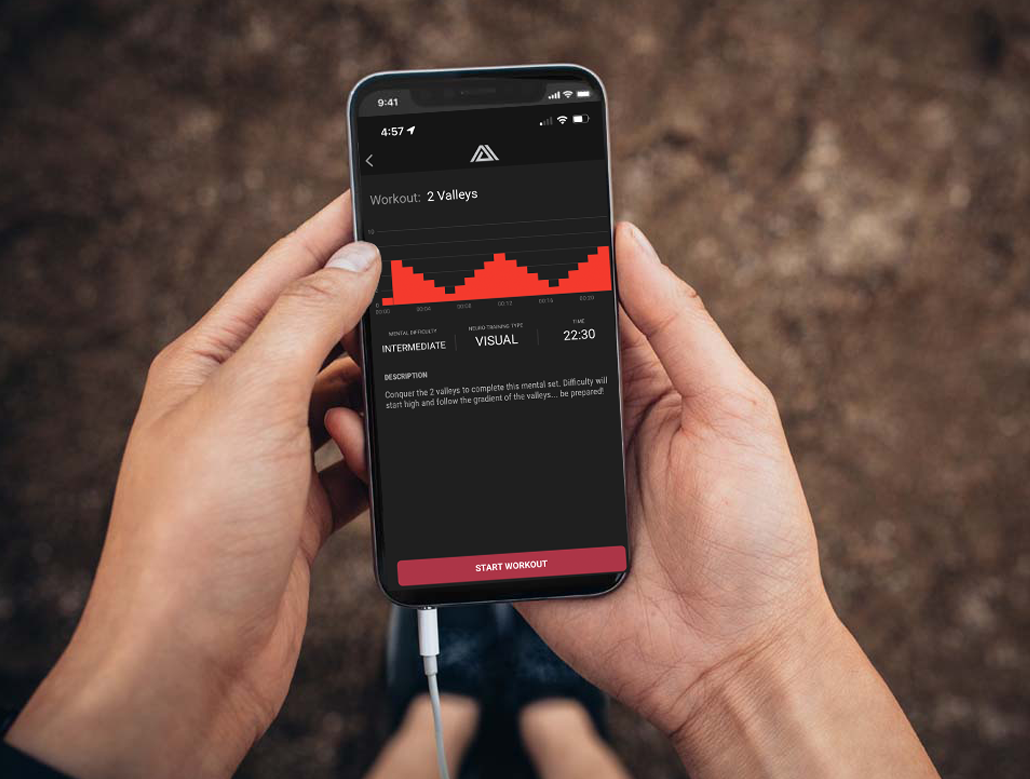
Use Rewire to develop mental toughness
Athletes can use Rewire to improve their mindset, manage stress, and boost mental toughness. The Athlete Platform is based on neuroscience, using brain-endurance training protocols to help you build mental toughness.
And if you’re a coach, you can use Rewire to enhance your athletes’ performance. You gain access to the readiness dashboard and can tailor sessions based on how “ready” your athletes are.
“With Rewire, you have a controlled environment and structure so that you can choose when you want to add mental training to your workouts and you can do it as often as you’d like.” – Laura Kline (Elite Ultra Runner & Endurance Athlete)
Find out how Rewire can help you
References:
- Bailey, R.R., 2019. Goal setting and action planning for health behavior change. American journal of lifestyle medicine, 13(6), pp.615-618.
- Fourie, S. and Potgieter, J.R., 2001. The nature of mental toughness in sport. South African Journal for Research in Sport, Physical Education and Recreation, 23(2), pp.63-72.
- McCarthy, P.J. and Gupta, S., 2022. Set goals to get goals: Sowing seeds for success in sports. Frontiers for Young Minds, 10(10.3389).


